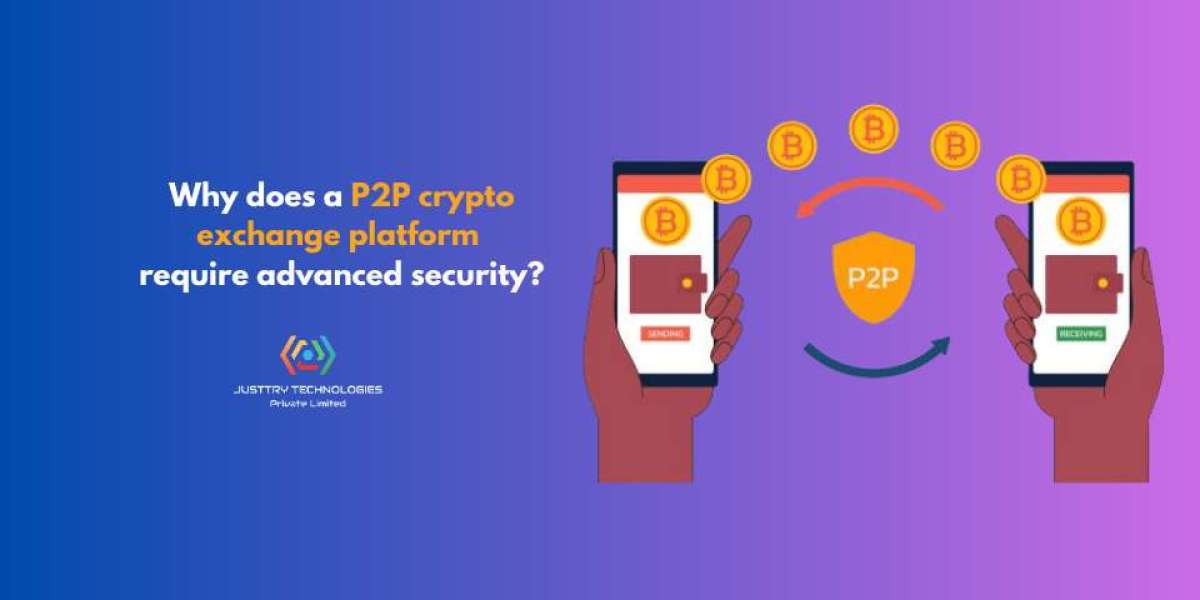The cryptocurrency market has experienced remarkable growth over the past decade, opening new opportunities for investors and businesses. Among various innovations in the crypto space, P2P crypto exchanges have gained immense popularity. These platforms enable users to trade cryptocurrencies directly with each other without the need for intermediaries, providing more privacy and autonomy.
In this blog, we will explore how P2P crypto exchange development ensures platform security through advanced technologies, robust security measures, and regulatory compliance, enabling secure and reliable platforms for global users.
What is P2P Crypto Exchanges
A P2P crypto exchange is a decentralized trading platform where users can buy, sell, or trade cryptocurrencies directly with one another. These platforms operate without a central authority, using automated processes like smart contracts and escrow systems to facilitate secure transactions.
The key advantages of P2P exchanges include enhanced privacy, reduced transaction fees, decentralized control, and global access to cryptocurrency markets. Popular examples like LocalBitcoins and Paxful showcase how these platforms provide flexibility in payment methods, pricing, and trade negotiations.
Key Security Challenges in P2P Crypto Exchanges
While P2P exchanges offer numerous benefits, they also face several security risks that can impact user trust and platform integrity:
- Fraud and Scams: Unscrupulous users may attempt to deceive or scam others during transactions.
- Hacking and Cyberattacks: Decentralized platforms are attractive targets for hackers seeking to exploit security loopholes.
- Data Breaches: Inadequate security can lead to the exposure of sensitive user information.
- Counterparty Risks: The risk that one party may fail to fulfill their trade obligations.
Such risks can significantly harm the reputation of a platform, making robust P2P crypto exchange security a necessity.
Core Security Measures Implemented by P2P Crypto Exchange Platforms
Multi-Factor Authentication (MFA)
MFA adds an extra layer of security to user accounts by requiring multiple forms of verification, such as SMS codes, authenticator apps, or biometric data. This reduces the risk of unauthorized access.
Verification
KYC processes help verify user identities to prevent fraudulent activities and ensure compliance with financial regulations. Technologies like digital document verification and facial recognition are commonly used.
Escrow Systems & Smart Contracts
Escrow services securely hold funds during a transaction and release them only when both parties fulfill the agreed terms. Smart contracts automate this process, ensuring transparency and reducing counterparty risks.
End-to-End Data Encryption & Secure Communication Channels
Encryption technologies protect sensitive data during transactions. Implementing SSL certificates and HTTPS protocols ensures secure communication between users and the platform. Security protocols are typically implemented during development by technical teams, often in collaboration with a blockchain development company to ensure alignment with decentralized architecture best practices.
Cold Wallet Storage for Fund Protection
Storing the majority of user funds in cold wallets (offline storage) protects assets from online attacks. Cold wallets are less susceptible to hacking compared to hot wallets that remain connected to the internet.
Regular Security Audits and Penetration Testing
Periodic security audits and ethical hacking help identify vulnerabilities before they can be exploited. This proactive approach keeps the platform's security framework strong and reliable.
Regulatory Compliance in P2P Crypto Exchanges
Compliance with global financial regulations is essential for the legitimacy and sustainability of P2P exchanges. AML (Anti-Money Laundering) and KYC regulations, along with data privacy laws like GDPR and CCPA, must be adhered to.
Development companies integrate these compliance measures during the build phase, ensuring platforms meet crypto exchange regulatory compliance standards.
Conclusion
Securing a P2P crypto exchange requires a thoughtful, multi-layered approach encompassing encryption, smart contracts, regulatory compliance, AI-driven monitoring, and continuous updates. Choosing the right development partner is crucial. Justtry Technologies is a leading Cryptocurrency exchange development company, known for building secure p2p crypto trading platforms that meet the highest standards of safety, compliance, and innovation. If you’re planning to launch your crypto exchange platform, developing with an experienced development team like Justtry Technologies ensures your journey starts with a strong, secure foundation.



